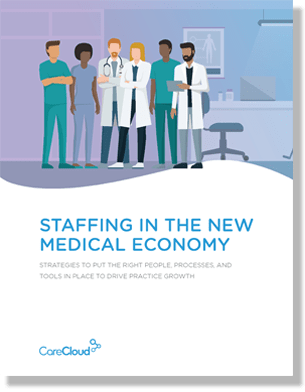COMMON ISSUES THAT LEAD TO INSURANCE CLAIM DENIALS
The insurance claim denial could cause big trouble for your practice, leading to problems with cash flow and the effectiveness of the training. Stopping insurance claim denial before they exit your practice speeds up the revenue cycle and enhances your practice’s profit-making ability. Handling an appeal process or denied claims raises administrative expenses and reduces cash flow, but efforts to lessen denial rates may positively impact the provider’s net income.
Insurers can deny an insurance claim for various reasons. The most frequent ones are:
-
Duplicate Claims
The most common reason for an insurance claim denial is not related to medical conditions or policy; instead, it’s often because providers make administrative mistakes. A worker in the front office could mistakenly send a claim again before allowing enough time for an insurance company to reply or re-submit a claim instead of continuing with an existing instance. When you have good procedures for submitting insurance claims and use a practice management solution that includes strong claims tracking and reporting features, it can assist in lessening insurance claim denial and enhancing your billing efficiency.
-
Improper Coding or Issues with ICD-10
The new coding language allows doctors and providers to record the treatments precisely. Still, it doesn’t promise fewer errors as physicians and billing staff keep getting used to the latest guidelines. If you spend time in a modern PM solution with built-in automated billing rules, it can highlight possible coding problems before even submitting the claim. This helps with increasing collections while decreasing administrative expenses. The clinical coding knowledge base is embedded directly within your PM solution, which makes the billing process more efficient by alerting you about potential issues before a claim leaves your system. With this, your team can handle more claims, spend less time chasing payments, and get paid on their first try.
-
Incorrect or Missing Patient Information
Claim denials often begin at the front desk. This is because small mistakes humans make, like incorrect or missing patient subscriber numbers, not having a date of birth, and insurance ineligibility, can cause the claim to be denied. A PM system with easy navigation and built-in eligibility checking helps make the check-in process smoother for patients and decreases administration errors. This ensures your claims are clean when they go out – leading to faster payment for your practice.
-
Lack of Documentation to Support Necessity
Sometimes, the payer may not be confident about the medical necessity of the encounter or procedure. They could need more paperwork to show how serious a service is and decide if it’s medically needed. Having an EHR and PM platform that’s united makes charting easy to find, helping you quickly get hold of the documentation required for supporting medical necessity – this can prevent any insurance claim denial from occurring.
Preventing claims denials is a difficult job. However, having staff who are correctly trained and using an effective PM solution can help to simplify the billing process and decrease the common coding or administrative mistakes causing most insurance claim denial.
Conclusion:
To stop claims from being denied is difficult, but it’s very important for any medical practice. You can reduce mistakes and make billing more efficient by giving your staff thorough training as well as using a strong solution for managing the practice. Procedures that work well and technology to catch errors before claims are sent in will lessen administrative expenses, improve money coming in, and in the end boost the financial condition of your medical business. Handling these typical matters with the same approach every time will result in smoother functioning and more successful claim approvals.




